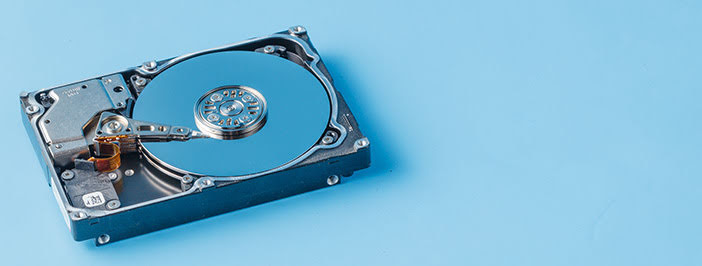When It Comes to Data Backup, What Are Your Options?
When you’re in the market for data backup solutions, you’re probably going to run across a huge number of options. While they all look good on paper, there are some that are a good fit for you (and some that just aren’t).
While they all back your data up in one way or another, some are better suited for different infrastructure sizes, environments and backup priorities.
Check out 4 of the most popular data backup options for both startups and SMBs.
Data Backup Options for Startups
Startups typically don’t require highly advanced data backup solutions. They need something to store their stuff securely in case the worst should occur. For that, we recommend a few options.
Dropbox
What it does: It allows you to store your files from anywhere in the world with an internet connection to the cloud. Even if you lose access to the internet, you can still access your files and make edits. When you restore the connection, it’ll automatically update the most recent changes.
Why you’ll love it: Dropbox provides a data backup option for startups that comes with fair pricing and an easy-to-use interface. There are many Dropbox competitors that offer similar services at around the same price point, so be sure to do your research first.
Related: What Should Your Business Be Backing Up?
Physical Hardware
What it does: Physical hardware backup options typically refer to shared drives. You can set up a shared drive to store data between users in a small environment. You can even use network attached storage (known as a NAS) to keep data backed up on-premise in a portable hard drive.
Why you’ll love it: Backup drives may have a fairly expensive up-front cost, but that’s all you pay – there are no additional subscription fees to pay. Many popular brands have built-in data backup management software, so it’s easier than ever before to manage your own backups.
Data Backup Options for SMBs
Small and medium-sized businesses face the challenge of needing a bigger, better, and more flexible backup solution. No problem – take a look at a few of these options.
Carbonite
What it does: Carbonite offers a more “serious” approach to data backup solutions for SMBs. It allows you to set folders that get automatically uploaded to the cloud. In addition, Carbonite stresses encryption and security policies to ensure that your data stays safe at all times.
Why you’ll love it: It’s reasonably priced, and it has unlimited storage for one computer (and it’s both Mac and Windows compatible, too). It’s got mobile integration, and it’s really easy to use. There are lots of different packages that give your SMB more flexibility for data backup storage options.
Related: How RTO and RPO Shape Your Backup Strategy
Backblaze
What it does: Backblaze offers the least expensive backup and recovery services around. The kicker? There’s no file explorer integration and no automatic mobile uploads. However, if you can look past those two details, you’ll also get neat features such as stolen drive location and the option to restore via a mailed drive.
Why you’ll love it: Backblaze caters to those that want the best hands-off data backup options. It’s got a simplified user interface that keeps your SMB focused on backup of the data, and not managing it constantly.
Data Backup Options for Your Business
There’s always a bit of grey area when it comes to data backup. Who’s the best provider? How can you get the best pricing? How easy is it to switch over if you find someone better?
Businesses that really want to succeed should turn to custom-built backup solutions. Working with an experienced data backup team can help you choose the perfect solution that fits your immediate needs and overall business goals.
Want to keep reading? Check out 4 smart reasons to outsource your IT management.





